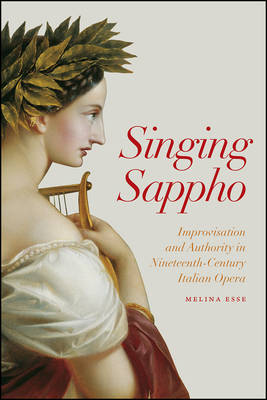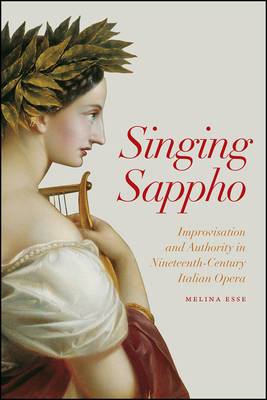
- Afhalen na 1 uur in een winkel met voorraad
- Gratis thuislevering in België vanaf € 30
- Ruim aanbod met 7 miljoen producten
- Afhalen na 1 uur in een winkel met voorraad
- Gratis thuislevering in België vanaf € 30
- Ruim aanbod met 7 miljoen producten
Zoeken
€ 68,95
+ 137 punten
Omschrijving
From the theatrical stage to the literary salon, the figure of Sappho--the ancient poet and inspiring icon of feminine creativity--played a major role in the intertwining histories of improvisation, text, and performance throughout the nineteenth century. Exploring the connections between operatic and poetic improvisation in Italy and beyond, Singing Sappho combines earwitness accounts of famous female improviser-virtuosi with erudite analysis of musical and literary practices. Melina Esse demonstrates that performance played a much larger role in conceptions of musical authorship than previously recognized, arguing that discourses of spontaneity--specifically those surrounding the improvvisatrice, or female poetic improviser--were paradoxically used to carve out a new authority for opera composers just as improvisation itself was falling into decline. With this novel and nuanced book, Esse persuasively reclaims the agency of performers and their crucial role in constituting Italian opera as a genre in the nineteenth century.
Specificaties
Betrokkenen
- Auteur(s):
- Uitgeverij:
Inhoud
- Aantal bladzijden:
- 224
- Taal:
- Engels
- Reeks:
Eigenschappen
- Productcode (EAN):
- 9780226741772
- Verschijningsdatum:
- 6/04/2021
- Uitvoering:
- Hardcover
- Formaat:
- Genaaid
- Afmetingen:
- 152 mm x 236 mm
- Gewicht:
- 408 g

Alleen bij Standaard Boekhandel
+ 137 punten op je klantenkaart van Standaard Boekhandel
Beoordelingen
We publiceren alleen reviews die voldoen aan de voorwaarden voor reviews. Bekijk onze voorwaarden voor reviews.











